Invited Speakers
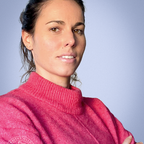

Jim Staples
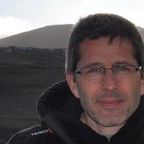
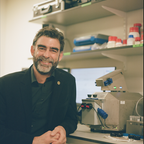
Nick Lane

Dr Karine Salin
Event Organisers

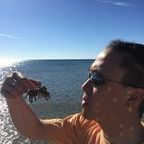

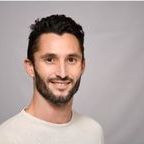
Here's the list of our fantastic invited speakers










University of Oslo
Lucie is a Researcher at the Section for Physiology and Cell Biology at the Department of Biosciences, University of Oslo (Norway). She is part of the Lefevre-Nilsson’s research group and explore the physiological and molecular mechanisms of anoxia tolerance in crucian carp, including mitochondrial adaptation.

Jim Staples obtained his honours BSc in Marine Biology from the University of Guelph in a previous millennium. He then completed a PhD in Zoology at the University of British Columbia, where his thesis studied the Metabolism of hepatocytes from a mammalian hibernator, Spermophilus lateralis. Following post-doctoral appointments at the University of California, Santa Barabara and Cambridge University, he began as an Assistant Professor in the Zoology Department (now Biology) at the University of Western Ontario in 1999, where he remains to this day. He was appointed as Professor in 2016, and served as Associate Chair (Graduate Studies) from 2021-2024. Jim has served as the President of the Canadian Society of Zoologists, and on the Discovery Grant evaluation group for the Natural Sciences and Engineering Research Council. He chaired the organizing committee for the 2024 International Hibernation Symposium (Mont Tremblant, QC, Canada). He currently serves on the Editorial Advisory Board of the Journal of Experimental Biology and on the board of the International Hibernation Society.

University Claude Bernard of Lyon, France
I am a professor at the University Claude Bernard of Lyon, France. I am an environmental physiologist with an interest in understanding the phenotypic plasticity of mitochondrial energy conversion system. I use a comparative approach in vertebrates and invertebrates to understand the biochemical and cellular basis involved in the flexibility of mitochondrial oxidative phosphorylation and coupling efficiency. My past and present research program address the specific question of whether mitochondrial coupling efficiency have the flexibility necessary to sustain animals when they are facing energetic challenges imposed by hormonal (glucocorticoids), nutritional (fasting, substrates), physiological (body size) or environmental (cold, heat wave, hypoxia) constraints.

Nick Lane is Professor of Evolutionary Biochemistry in the Department of Genetics, Evolution and Environment at University College London, and Director of the UCL Centre for Life’s Origins and Evolution (CLOE). He was one of the founders of the UCL Consortium for Mitochondrial Research, and is a member of EMBO, a fellow of the Royal Society of Biology and a fellow of the Linnean Society. Prof Lane's research is on how membrane bioenergetics has shaped evolution from the origin of life to the evolution of eukaryotic cells and the emergence of complex traits such as sex, ageing and consciousness. His group combines theoretical modelling with experiments ranging from simulating prebiotic chemistry in deep sea hydrothermal systems, to mitonuclear interactions in Drosophila, and most recently the mitochondrial effects of anaesthetics. Nick has published more than 130 papers in leading journals including Nature, Cell and Science, and written five celebrated books. These have been translated into 30 languages, selected among the ‘Books of the Year’ by numerous publications including Nature, New Scientist and The Economist, and won prestigious prizes including the Royal Society Science Book Prize (2010), the Biochemical Society Award (2015) and the Royal Society Faraday Prize (2016). Bill Gates called The Vital Question “an amazing inquiry into the origins of life”.

La Rochelle University, France
Elisa has been an Associate Professor at La Rochelle University since September 2024. Her primary research objective is to examine how changes in environmental parameters, such as temperature, affect individual performance and metabolism in both ectotherms (fish) and endotherms (birds). Especially, she aims to assess the relationships between physiological traits, including metabolism, measured at several biological levels, and how environmental changes influence these relationships. In the future, she seeks to better characterize how individual plasticity can be transmitted through generations in a context of climate change, and how changes at the individual level can affect populations and, more broadly, other trophic levels.

Claude Bernard University LYON 1, France
Loïc is an Associate Professor at University Claude Bernard Lyon, in the LEHNA Lab, and works on fish ecophysiology. He is currently particularly interested in trying to understand how fish can cope with rapid-changing environments, through the study of metabolism at different biological levels. He is still trying to look at the potential link between this metabolic plasticity and cellular bioenergetic flexibility.

University College London
Enrique is a postdoc in the Department of Genetics, Evolution and Environment working with Prof. Nick Lane. He is interested in everything surrounding mitochondria: from their fundamental structure, function, roles in oxidative stress in the context of aging, diseases and evolution. He investigates the effect of mitonuclear interactions on the response to diets and stressors in the fruit fly, Drosophila melanogaster, as well as the potential role of mitochondrial function as a fundamental process at the basis of consciousness.

University of Auckland
Jules is a Research Fellow at the Applied Surgery and Metabolism Lab (ASML) within the School of Biological Sciences. His research investigates mitochondrial function and dysfunction across various animal models and stressors. He examines the extreme of metabolism in bumblebee flight muscle, the impact of temperature on mitochondrial function in fish hearts, exploring multiple biological levels. His research also extends to mitochondrial plasticity in anoxia-tolerant sharks and intertidal fish. With a translational aspect, he has been involved in motor neuron disease, cancer, and space research. More recently, he has been addressing mitochondrial physiology in human liver and heart transplantation in the context of ischemia-reperfusion injuries.